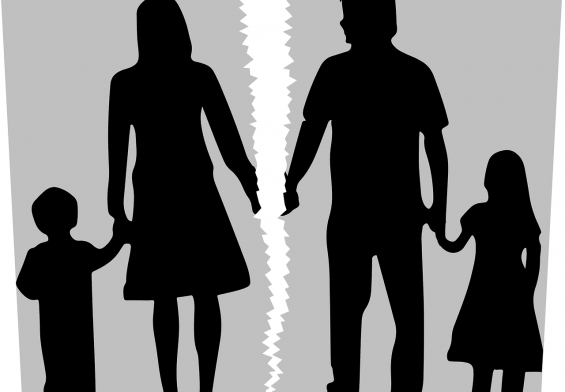As the demand for in-home caregiving continues to grow across the United States, legal questions around caregiver rights and household liability are becoming more common. One area that often leads to confusion and concern is what happens when a caregiver, whether hired through an agency or privately, gets injured while providing services in a private residence.
Can a caregiver sue? Is the homeowner responsible? What laws apply in states like New Jersey or Pennsylvania? These are important questions for both caregivers and the families who rely on them.
In this blog, we’ll break down everything you need to know about workplace injuries in the home care setting, focusing on employment classification, liability, compensation, and legal recourse in everyday scenarios.
Why This Matters
Unlike traditional workplaces, a private home isn’t usually equipped with safety protocols, HR policies, or legal departments. Yet it can become a work environment when a caregiver steps in to assist an aging adult or someone recovering from surgery or illness. That shift in context introduces potential risks for both parties.
According to the Occupational Safety and Health Administration (OSHA), home care workers face a range of hazards, from lifting injuries and falls to exposure to infectious diseases or even hostile pets. When an injury happens, determining who’s responsible can be legally and emotionally complex.
Step 1: Determine Employment Status
The first step in understanding liability is figuring out how the caregiver is classified:
1. Employed by an Agency
Caregivers hired through a licensed home care agency are usually employees of the agency, not of the client or their family. In this case, the agency is responsible for:
- Workers’ compensation coverage
- Payroll taxes and benefits
- Training and compliance
If the caregiver is injured while on the job, they typically file a workers’ comp claim through the agency. The homeowner is usually not liable—unless they directly caused the injury through intentional misconduct or hazardous conditions.
2. Hired Privately
Families that hire a caregiver directly—through a personal ad, recommendation, or online platform—may become household employers under state labor laws. This status brings certain responsibilities, including:
- Paying payroll taxes
- Providing a safe work environment
- Carrying workers’ comp coverage (required in some states)
In New Jersey, for instance, families who employ someone to work more than 40 hours per week in their home are required by law to carry workers’ compensation insurance. In Pennsylvania, similar coverage is recommended but may depend on the number of hours worked.
3. Independent Contractor
Sometimes, caregivers are hired as independent contractors, meaning they are responsible for their own insurance and tax filings. However, courts have occasionally ruled that someone labeled a contractor is actually an employee, based on factors like the level of control the family has over their schedule, tools, and duties.
Step 2: Understand the Types of Injuries and Hazards
Caregiving is physically and emotionally demanding. Injuries can occur suddenly or develop over time. Common risks include:
- Lifting and transferring clients, which can cause back and shoulder injuries
- Slips, trips, and falls due to clutter, wet floors, or poor lighting
- Animal bites or scratches from household pets
- Needle sticks or exposure to bodily fluids when performing medical tasks
- Mental health strain, especially in cases involving dementia care or aggressive patients
Each of these injuries may lead to different legal outcomes, depending on the situation and how the injury occurred.
Can a Caregiver Sue the Homeowner?
Yes—In Certain Situations
If the caregiver is injured due to unsafe conditions and is not covered under a workers’ compensation policy (either from an agency or the family), they may have grounds to file a personal injury lawsuit against the homeowner.
A caregiver may sue if:
- The injury was caused by unsafe premises, such as a broken stair or loose carpeting
- The homeowner violated a duty of care, such as failing to clean up spills or failing to restrain a dangerous pet
- The homeowner was legally required to carry workers’ comp coverage and failed to do so
A lawsuit may seek compensation for:
- Medical bills
- Lost wages
- Pain and suffering
- Permanent disability
However, if the injury occurred while the caregiver was engaged in inherently risky activities they were trained for (e.g., lifting), and the environment was reasonably safe, proving negligence may be difficult.
What About Homeowners’ Insurance?
Many people don’t realize that homeowners’ insurance policies may cover certain types of liability, including injuries to domestic workers. However, not all policies include this, and there may be exclusions based on employment classification or the number of hours worked.
Homeowners should:
- Review their policy to check for domestic worker coverage
- Consider adding a rider to cover part-time or full-time caregivers
- Explore purchasing domestic workers’ comp insurance if hiring someone privately
In many states, including NJ and PA, household employers can purchase this type of coverage through a private insurer or state-assigned insurance fund.
Caregivers: What Legal Options Do You Have?
If you’re a caregiver injured while on the job in a private home, here are some actions to consider:
- Seek medical attention immediately and document the injury.
- Notify your employer—whether that’s an agency or private household—as soon as possible.
- Determine your employment status.
- File a workers’ compensation claim, if applicable.
- If no workers’ comp is available and the injury resulted from unsafe conditions, consult with a personal injury attorney to discuss your rights.
Note: Even if you are undocumented, you may still have legal options. Courts in many states have ruled that immigration status does not negate a worker’s right to a safe workplace and fair compensation for injuries.
Legal Considerations for Families
If you’re hiring in-home help, whether temporarily or long-term, taking proactive steps can reduce the risk of legal issues:
- Use an agency if you want to shift liability and management to a third party
- If hiring privately, get informed about employment laws in your state
- Conduct a home safety audit and address hazards
- Create a written contract outlining expectations, duties, and insurance coverage
- Speak with your insurance agent about liability and coverage gaps
By treating caregiving like the professional job it is, families not only show respect for the worker, they also protect themselves from unexpected legal complications.
Final Thoughts: Prioritizing Safety and Clarity
No one enters a caregiving arrangement expecting accidents to happen. But they can—and when they do, it’s essential for both caregivers and families to understand their rights and responsibilities. Whether it’s through a workers’ compensation claim or legal action, caregivers have a right to a safe working environment. At the same time, families deserve clarity about what they’re legally responsible for.
By opening the conversation about legal protections in home care, we help make the experience safer, more respectful, and ultimately more sustainable for everyone involved.




